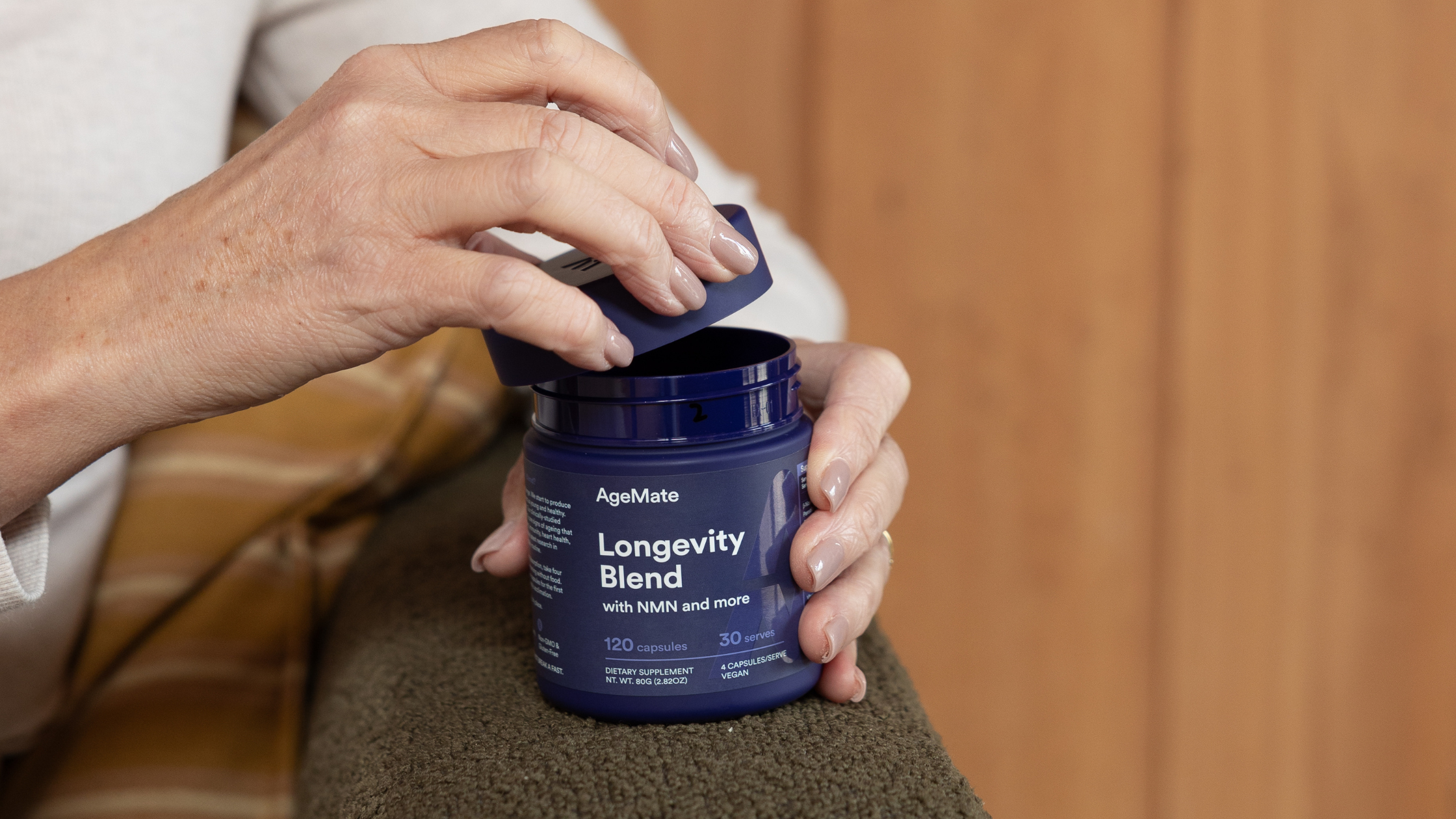Key Takeaways
- Although you can’t stop ageing entirely, slowing down the biological processes behind it is possible through lifestyle and scientific interventions.
- Cellular ageing can be delayed by targeting DNA repair, oxidative stress, and inflammation using proven methods such as diet, exercise, and supplementation.
- Emerging science, including epigenetics and cellular reprogramming, offers promising possibilities for reversing aspects of biological ageing.
Imagine being able to slow down the ticking clock inside your body. While science hasn’t yet found a way to make humans immortal, it has made remarkable strides in understanding how to delay biological ageing. Scientists studying long-lived individuals and model organisms like worms and mice have uncovered strategies that target the core drivers of ageing.
But the question remains: is it possible to not age—or at least slow it down dramatically? Let’s explore the exciting research and practical tips that could help you do just that.
Understanding Why We Age: The Science Behind the Process
To understand whether you can stop ageing, it helps to know why it happens. Ageing isn’t just about wrinkles and grey hair—it’s a biological process involving cellular damage, DNA mutations, and the gradual decline of your body’s repair mechanisms.
One of the most recognised theories of ageing is the free radical theory, which suggests that reactive oxygen species (ROS) cause damage to DNA, proteins, and lipids, leading to cell dysfunction (R). Over time, this damage accumulates, affecting organs, tissues, and vital processes. Another key concept is cellular senescence, where old, damaged cells stop dividing but continue releasing inflammatory molecules that accelerate ageing (R).
By addressing these mechanisms, scientists believe you can significantly extend healthspan—the number of years you live free of disease.

The Role of Epigenetics: Can You Reprogram Your Cells?
One of the most exciting developments in longevity research is epigenetics, the study of how lifestyle factors influence gene expression. Your DNA provides a blueprint for your body, but your environment—diet, exercise, sleep, and stress—determines which genes are switched on or off.
This concept explains why identical twins, who share the same genetic material, can age differently depending on their lifestyle. Studies show that poor sleep, high stress, and processed diets accelerate epigenetic ageing by promoting inflammation and oxidative stress (R). Conversely, a healthy lifestyle can delay biological ageing by improving DNA repair and reducing cellular damage.
Scientists are now exploring epigenetic reprogramming, a process that “resets” cells to a more youthful state by modifying their epigenetic markers. Early animal studies have shown promising results, suggesting that age-related damage could potentially be reversed in humans (R).
Cellular Rejuvenation: Fasting, Autophagy, and Mitochondrial Health
One of the ways to slow ageing is by promoting autophagy, a natural process where your body removes damaged cells and recycles their components. Think of it as a cellular spring cleaning. Autophagy is triggered by fasting and calorie restriction, both of which have been shown to improve metabolic efficiency and delay age-related decline (R).
In studies involving mice and worms (C. elegans), calorie restriction activated key longevity pathways, including the AMPK and mTOR pathways, which regulate energy balance and cellular growth (R). By restricting calories or adopting intermittent fasting, you can support mitochondrial health—essential for energy production and cellular repair.
Even moderate fasting, such as an overnight fast of 12-16 hours, can have profound anti-ageing effects. Combined with a diet rich in antioxidants and anti-inflammatory foods, fasting could be a simple, sustainable way to promote longevity.

Oxidative Stress and Inflammation: The Enemies of Youth
If you want to slow ageing, reducing oxidative stress and chronic inflammation should be at the top of your list. Oxidative stress occurs when free radicals overwhelm your body’s ability to neutralise them, leading to cellular damage. Chronic inflammation, often referred to as “inflammageing,” accelerates the progression of age-related diseases like heart disease, arthritis, and Alzheimer’s (R).
A diet high in antioxidants—found in berries, leafy greens, and nuts—can help combat oxidative stress. Supplementing with key anti-inflammatory nutrients, such as omega-3 fatty acids and curcumin, may also provide protection against accelerated ageing (R). Regular exercise further reduces inflammation by increasing the production of anti-inflammatory cytokines and promoting better circulation.
Caloric Restriction vs. Nutrient Density: What Should You Prioritise?
You’ve probably heard that cutting calories can extend lifespan, but the quality of those calories matters just as much. Studies show that nutrient-dense diets rich in vitamins, minerals, and phytonutrients can help repair DNA damage and support optimal cellular function (R).
In contrast, ultra-processed foods contribute to mitochondrial dysfunction and inflammation, accelerating biological ageing. Diets like the Mediterranean diet, which emphasise whole foods, healthy fats, and antioxidants, have been associated with longer lifespans (R).
You don’t need to follow extreme calorie restriction to benefit. Even a modest reduction, combined with nutrient-dense meals, can activate protective pathways that improve longevity.
The Potential of Anti-Ageing Interventions: Supplements and Emerging Therapies
In addition to lifestyle changes, science is exploring interventions that could slow or reverse aspects of ageing. Nicotinamide adenine dinucleotide (NAD+) boosters, such as NMN and NR, have gained significant attention due to their role in DNA repair and mitochondrial function. NAD+ levels decline with age, contributing to cellular dysfunction, but studies suggest supplementation can restore energy production and delay age-related decline (R).
Other promising interventions include senolytics, compounds designed to eliminate senescent cells. Early trials indicate that removing these “zombie cells” can rejuvenate tissues and improve physical function (R). Meanwhile, metformin, a diabetes drug, is being tested for its potential to reduce inflammation and improve longevity in non-diabetic individuals.
Managing Stress and Optimising Sleep for Longevity
High stress and poor sleep don’t just leave you feeling tired—they accelerate biological ageing by increasing inflammation and cortisol levels. Chronic stress impairs DNA repair mechanisms, while insufficient sleep disrupts circadian rhythms, affecting cellular regeneration (R).
Adopting relaxation techniques like meditation, deep breathing, or yoga can help reduce stress and promote hormonal balance. Prioritising quality sleep, with 7-8 hours per night, ensures that your body has time to repair damage and maintain cognitive health as you age.

Checklist: How to Delay Ageing
✔️ Support cellular repair through autophagy with intermittent fasting or calorie restriction.
✔️ Prioritise a nutrient-dense diet that combats oxidative stress and inflammation.
✔️ Explore longevity supplements like NAD+ boosters (NMN and NR) and maintain good sleep hygiene.
Is It Possible to Stop Ageing?
While you can’t stop ageing entirely, science shows that slowing biological ageing is within reach. By adopting a proactive approach that includes healthy eating, regular exercise, stress management, and emerging anti-ageing therapies, you can enjoy a longer healthspan.
Want to know more about scientifically proven ways to promote healthy ageing? Don’t miss our blog on Science-Backed Ways to Reduce Skin Ageing, where we explore the top supplements that target ageing at the cellular level.





